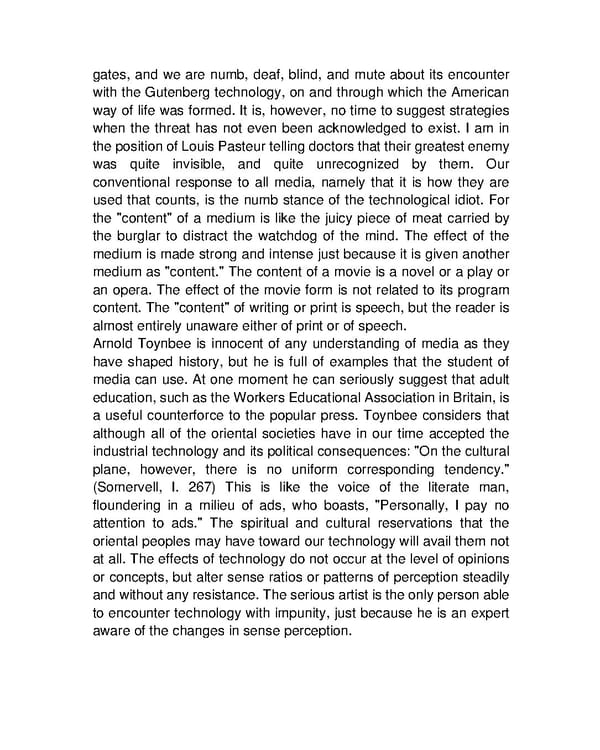gates, and we are numb, deaf, blind, and mute about its encounter with the Gutenberg technology, on and through which the American way of life was formed. It is, however, no time to suggest strategies when the threat has not even been acknowledged to exist. I am in the position of Louis Pasteur telling doctors that their greatest enemy was quite invisible, and quite unrecognized by them. Our conventional response to all media, namely that it is how they are used that counts, is the numb stance of the technological idiot. For the "content" of a medium is like the juicy piece of meat carried by the burglar to distract the watchdog of the mind. The effect of the medium is made strong and intense just because it is given another medium as "content." The content of a movie is a novel or a play or an opera. The effect of the movie form is not related to its program content. The "content" of writing or print is speech, but the reader is almost entirely unaware either of print or of speech. Arnold Toynbee is innocent of any understanding of media as they have shaped history, but he is full of examples that the student of media can use. At one moment he can seriously suggest that adult education, such as the Workers Educational Association in Britain, is a useful counterforce to the popular press. Toynbee considers that although all of the oriental societies have in our time accepted the industrial technology and its political consequences: "On the cultural plane, however, there is no uniform corresponding tendency." (Somervell, I. 267) This is like the voice of the literate man, floundering in a milieu of ads, who boasts, "Personally, I pay no attention to ads." The spiritual and cultural reservations that the oriental peoples may have toward our technology will avail them not at all. The effects of technology do not occur at the level of opinions or concepts, but alter sense ratios or patterns of perception steadily and without any resistance. The serious artist is the only person able to encounter technology with impunity, just because he is an expert aware of the changes in sense perception.
 Understanding Media by Marshall McLuhan Page 18 Page 20
Understanding Media by Marshall McLuhan Page 18 Page 20